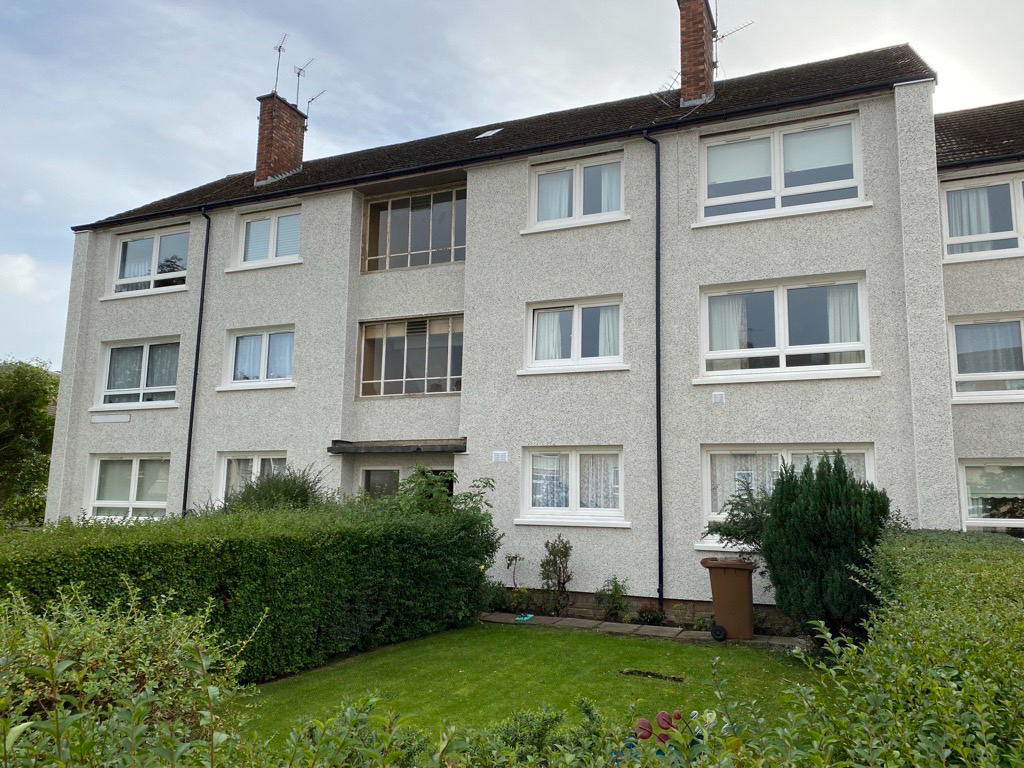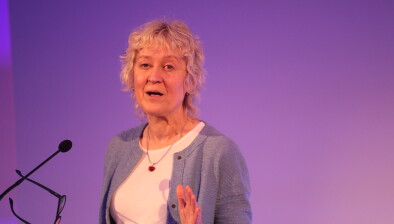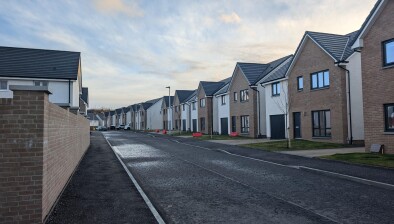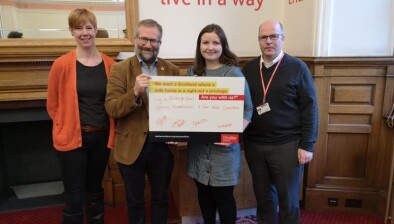Edinburgh confirms housing emergency declaration

Councillors in Edinburgh have overwhelmingly voted to recognise and seek to address the scale of the capital’s housing crisis.
In a first for the city, and only the second time in Scotland, members agreed to officially declare an emergency during a Full Council meeting yesterday.
It comes as Shelter calls on local authorities to take concerted action across the country, and as homelessness reaches close to 5,000 households a night in the capital despite a huge amount of preventative work by the third sector, council and partners.
A paper by the Edinburgh Poverty Commission and the End Poverty Edinburgh group was also circulated to councillors.
Councillor Jane Meagher, housing, homelessness and fair work convener, tabled the motion at yesterday’s meeting.
“Edinburgh is a caring, welcoming city and our council officers, charities and partners do an incredible job supporting our most vulnerable residents,” Councillor Meagher said. “Sadly, however, despite us doubling the council’s homelessness budget over the last three years, we are now at risk of failing households who need our help most.”
She added: “Edinburgh may be a wealthy city on the surface, but we are seeing demand for homes far outstrip supply. Close to 5,000 households including many children will need to live in temporary accommodation this Christmas, because of this housing shortage.
“This is not a new challenge, but it is at the stage of breaking point. Rents are being driven up, the cost of living continues to put pressure on household bills and homelessness is rising. We have ambitious housebuilding plans, but we face rising construction costs as a result of inflation and difficulties securing land. This is against a backdrop of Edinburgh having the lowest proportion of homes for social rent in all of Scotland.
“By declaring a housing emergency, we hope to draw widescale attention to an issue that demands urgent and united action. Every single person deserves a warm, safe, and affordable place to call home and we can address this, if we act now.
“I’m pleased this decision received such powerful support today from councillors and we will now work towards establishing a Housing Emergency Action Plan, while seeking the resources necessary to achieve its success.”
Shelter Scotland director, Alison Watson, said: “Scotland is facing a housing emergency, which is at its most acute in the capital.
“By acknowledging the reality of the housing emergency in Edinburgh, councillors now have licence to deliver the emergency response we need.
“There was an enormous breadth of support for today’s declaration from organisations working in housing, homelessness, and social justice in Edinburgh.
“People in Edinburgh are struggling through this housing emergency, and they expect action to be taken at every level of government.
“With councillors having committed to delivering a housing emergency action plan, Shelter Scotland stands ready to work with the council in its development.
“Councillors have taken a positive step today, but this is just the beginning of a journey which must ultimately lead to the end of the housing emergency in Edinburgh.”
Edinburgh is now the second local authority in Scotland to declare a formal housing emergency after Argyll and Bute Council did so earlier this year.
Homebuilder representative body Homes for Scotland (HFS) said the declaration reflects an unfortunate reality across Scotland.
Chief executive Jane Wood said: “This is a dreadful position for our capital city to be in but unfortunately it reflects much of the reality across the whole of Scotland.
“Ensuring we have enough homes that people can afford and that meet the housing needs and aspirations of all those who live in, or want to live in, Scotland is fundamental to the social wellbeing of our population and our economic success.
“Whilst we welcome the attention being drawn to the housing crisis by the convener of Edinburgh’s Housing Committee, the council must look at the consequences of the emerging City Plan 2030, which seeks to deliver fewer affordable homes than the council itself identifies are required.
“This works against the aim of delivering more homes and will actually result in the inequality and affordability issues that are already so prevalent being further exacerbated.”
Ms Wood highlighted the setting of a housing supply target that does not seek to meet all of the housing need and demand that the council itself has evidenced; the brownfield-centric approach to the allocation of new sites for residential development, when a blended approach has historically proved vital to delivering enough homes; and the unviable and unavailable nature of many of the identified brownfield sites, many of which will be impossible to deliver due to other Plan policies.
She added: “Our concerns are further heightened by the significant reduction in Edinburgh’s Minimum All Tenure Housing Land Requirement numbers published as part of the revised draft National Planning Framework 4 and which have fallen from 41,300 to 36,750.
“Independent analysis has already evidenced that the Plan is likely to significantly underdeliver the amount of homes required, with further research showing that it would result in the displacement of c400 businesses which would translate into the loss of 3,600 jobs with a cumulative loss to Edinburgh’s economy over ten years of c£2.6bn.
“We see from today’s motion that the council notes the importance of collaborative working and hope that this involves those delivering the homes of all tenures that are required and recognises the interdependencies between private for sale and Affordable housing.
“We must stop going round in circles on the housing crisis and find transformational solutions to effectively resolve it. We and our members are committed to achieving this in partnership with local and central government.”
Lesley Anderson, regional director at the Scottish Procurement Alliance - which was crucial to the delivery of 567 affordable homes last year, including 193 in Edinburgh - said: “The announcement of Edinburgh’s housing crisis is no surprise and a clear wakeup call that we need immediate action to empower social landlords to get social homes back on track.
“It’s a Scotland-wide problem. By providing better funding and cutting the red tape, we can enable associations to deliver quality, community-driven social housing.
“With a raft of head winds facing the housing sector at the moment, Scotland’s Housing to 2040 vision will be a major challenge to achieve.
“Other regulations and aspirations aren’t helping the cause. With the uncertainty of the proposed Scottish Passivhaus equivalent standard from December 2024, adding to the hefty load the sector is already carrying.
“Recent rent freezes, soaring prices, inflationary pressures, skills shortages and sustainability of contractors have all played a part in the reduction of new build development and existing unoccupied social housing.
“Housing providers across Scotland need more support and guidance if they are to have any chance of meeting government-led targets and manoeuvre this crisis.”








